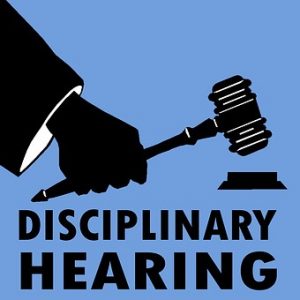 On June 27, 2018, the United States Supreme Court issued an important employment law decision in the case of Janus v. American Federal of State, County and Municipal Employees (“AFSCME”). Prior to Janus, the general law was that public sector unions (i.e. unions comprised of governmental employees) could collect fees from employees even when the employee did not want to join the union. The prior law was set in the case of Abood v. Detroit Board of Education,a prior United States Supreme Court case from 1977.
On June 27, 2018, the United States Supreme Court issued an important employment law decision in the case of Janus v. American Federal of State, County and Municipal Employees (“AFSCME”). Prior to Janus, the general law was that public sector unions (i.e. unions comprised of governmental employees) could collect fees from employees even when the employee did not want to join the union. The prior law was set in the case of Abood v. Detroit Board of Education,a prior United States Supreme Court case from 1977.
In Abood, the Court held that a public employee could still be required to pay union dues to cover collective bargaining, contract administration, and grievances even if they refused to join the union. The employee could only opt out of paying a portion of fees which were used for political purposes. Much of the reasoning for that holding was that public employees would benefit from union activities and thus should have to pay for such activities; however they did not need to pay for ideological or political support which the employee did not support. Being forced to make donations to political candidates through mandatory union dues was found to be a violation of First Amendment rights.
However, the Janus ruling changed that long-followed law. Janus argued that everything a public-sector union does (including bargaining for wages) is inherently political because it involves the use of taxpayer money, and therefore all mandatory union dues protected by the First Amendment. One concern is that this could potentially have a negative effect upon democratic political support where unions are generally very active in supporting candidates.
 As previously discussed here, on May 2, 2018, New Jersey’s Governor, Phil Murphy signed into law New Jersey’s Paid Sick Leave Act (the “Act”). The Act took effect on October 29, 2018. The New Jersey Department of Labor and Workforce Development (“NJDOL”) issued proposed regulations to further address the employees’ rights and employers’ obligations under the Act.
As previously discussed here, on May 2, 2018, New Jersey’s Governor, Phil Murphy signed into law New Jersey’s Paid Sick Leave Act (the “Act”). The Act took effect on October 29, 2018. The New Jersey Department of Labor and Workforce Development (“NJDOL”) issued proposed regulations to further address the employees’ rights and employers’ obligations under the Act. New Jersey Lawyers Blog
New Jersey Lawyers Blog


 Amazingly, despite the law being clear for many years that age discrimination in employment is illegal, and despite the fact that both research and experience have shown the value of mature workers, age discrimination against older employees continues to be widespread in New Jersey and the country at large. Both the Federal Age Discrimination in Employment Act and New Jersey’s Law Against Discrimination provide strict prohibitions against employers and supervisors discriminating against older employees.
Amazingly, despite the law being clear for many years that age discrimination in employment is illegal, and despite the fact that both research and experience have shown the value of mature workers, age discrimination against older employees continues to be widespread in New Jersey and the country at large. Both the Federal Age Discrimination in Employment Act and New Jersey’s Law Against Discrimination provide strict prohibitions against employers and supervisors discriminating against older employees. On June 27, 2018, the United States Supreme Court issued an important employment law decision in the case of Janus v. American Federal of State, County and Municipal Employees (“AFSCME”). Prior to Janus, the general law was that public sector unions (i.e. unions comprised of governmental employees) could collect fees from employees even when the employee did not want to join the union. The prior law was set in the case of
On June 27, 2018, the United States Supreme Court issued an important employment law decision in the case of Janus v. American Federal of State, County and Municipal Employees (“AFSCME”). Prior to Janus, the general law was that public sector unions (i.e. unions comprised of governmental employees) could collect fees from employees even when the employee did not want to join the union. The prior law was set in the case of  Our employment attorneys represent applicants who have been removed from lists of eligibles for Civil Service positions for a variety of reasons including disqualification for failing background check, failing to maintain residency, and psychological and medical disqualification.
Our employment attorneys represent applicants who have been removed from lists of eligibles for Civil Service positions for a variety of reasons including disqualification for failing background check, failing to maintain residency, and psychological and medical disqualification. New Jersey’s government employees provide a wide range of services without which the public could not survive. These range from law enforcement to firefighting, mass transit, garbage removal, building and maintaining roads, ensuring the safety of buildings, protecting the civil rights of New Jersey’s citizens, protecting the environment, traffic safety, urban planning, parks, agriculture, guarding inmates, the list goes on – in short, they affect virtually every aspect of our lives.
New Jersey’s government employees provide a wide range of services without which the public could not survive. These range from law enforcement to firefighting, mass transit, garbage removal, building and maintaining roads, ensuring the safety of buildings, protecting the civil rights of New Jersey’s citizens, protecting the environment, traffic safety, urban planning, parks, agriculture, guarding inmates, the list goes on – in short, they affect virtually every aspect of our lives.
 All state employees, and the majority of state and local employees in New Jersey, are governed by the New Jersey’s civil service laws. In the case of
All state employees, and the majority of state and local employees in New Jersey, are governed by the New Jersey’s civil service laws. In the case of  Businesses entering into negotiations with other businesses or persons often need to give the other party confidential information. For example, a business will need to give a potential buyer information regarding its revenue, expenses, customers, formulas, payroll, vendors, and pricing so that the potential buyer can formulate an offer during the due diligence period. If the deal falls through the seller will rightly want to ensure that the buyer which backed can’t use this information to compete with it or disclose it to competitors or customers.
Businesses entering into negotiations with other businesses or persons often need to give the other party confidential information. For example, a business will need to give a potential buyer information regarding its revenue, expenses, customers, formulas, payroll, vendors, and pricing so that the potential buyer can formulate an offer during the due diligence period. If the deal falls through the seller will rightly want to ensure that the buyer which backed can’t use this information to compete with it or disclose it to competitors or customers. The United States Court of Appeals for the Third Circuit recently issued an important
The United States Court of Appeals for the Third Circuit recently issued an important